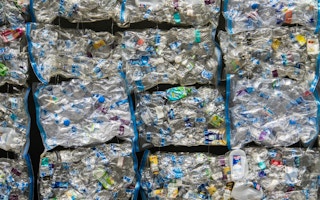Better solutions are needed to solve Southeast Asia’s ever-increasing amount of waste.
The region – already responsible for a fifth of all rubbish produced globally – could generate more than 300 million tonnes of refuse annually by 2030, with plastic waste currently comprising a tenth of all discarded matter created.
Much of this increase can be attributed to urbanisation and economic growth within the region, as well as its rising population, which has increased by almost 25 per cent over the last two decades to over 690 million.
These factors naturally lead to increased consumption and with it, waste generation, which is further compounded by consumer preferences towards e-commerce and the purchase of convenient, packaged goods.
The growing amount of waste is taking a toll on the environment, highlights Shannon Lung, noting that better solutions are urgently needed for refuse to be better managed before it is too late.
“Excess waste often leads to poor waste management such as rubbish being disposed in the ocean, or landfills being filled beyond their capacity,” said Lung, head of UOB FinLab.
UOB FinLab is an innovation accelerator established by Singapore’s United Overseas Bank to support business growth and transformation.
More than 80 per cent of rubbish flowing into oceans comes from the Asean region. There is also an inadequate ecosystem for waste disposal, collection, treatment, and recycling among Southeast Asian countries, where 90 per cent of rubbish is either dumped or burned.
Singapore alone generates almost a million tonnes of plastic waste each year, with most of its waste usually incinerated, resulting in the release of carbon emissions, with the resulting ash then stored in its only landfill, Semakau Landfill.
While government bodies in Asean recognise the importance of reducing waste and have introduced various measures to conserve landfill space, such as Singapore’s reduce, reuse, recycle or “3Rs” initiative by the National Environment Agency, it is far from enough.
“Current mechanisms are a step in the right direction, but a larger collaborative effort is required to successfully achieve the goal of waste reduction,” Lung said.
Tackling waste with technology
Innovation in particular has the potential to tackle the waste issue, added Lung.
However, many solutions within the region require the right funding, exposure, and partnerships to scale. “Technology and innovation are arguably one of the most important factors that will expedite change – not only in waste management, but in addressing wider sustainability goals,” he noted.
For instance, waste-to-energy plants, which convert non-recyclable waste into energy via combustion to generate electricity, are being constructed in Southeast Asia, including in Singapore, Thailand, and Indonesia.
In Indonesia, one start-up called Octopus uses tech solutions to run a reverse-logistics platform, which helps to collect post-consumer products for recycling into raw materials usable by brands.
In Singapore, “smart bins” that harness more advanced tools such as the Internet of Things (IoT) and artificial intelligence, are being used to promote better recycling practices.
Such solutions are key to handling plastic waste, says Lung, as they can prevent waste plastics from leaking into and polluting the environment.
“Excessive plastic waste is often broken down into microplastics over time, which harm biodiversity, especially among animals that confuse it for food,” he added.
While Southeast Asia may be home to over 7,000 start-ups in the digital space – 80 per cent of which are based in Indonesia, Singapore, or Vietnam – there are fewer than 100 climate tech start-ups in Southeast Asia, according to 2022 data from Statista.
Despite increased interest in the climate space among tech start-ups in the region, many face funding roadblocks and the necessary exposure to industry leaders, governments, scientists, and banks needed to forge strategic partnerships and scale, Lung notes.
“
Accelerator programmes play a crucial role in bringing together governments, industry players, greentech solution providers, and other stakeholders to drive business growth and innovation through collaboration.
Shannon Lung
Plugging the gap
Asean’s growing waste challenges present a “huge opportunity” for start-ups in the region, notes Prashant Singh, co-founder and CEO of Blue Planet Environmental Solutions, a Singapore-based company focused on developing innovative waste management solutions.
“In the last two decades, the industry has been largely focused on the ‘lift and shift’ model. In Asia-Pacific, our naivety has made us believe in the technology from Global North and developed countries, and it was assumed that if the technology is imported from parts of Europe and deployed here, it should work. Unfortunately, that hasn’t been the case,” he said.
This, however, places solutions created within Asean – and those aimed at addressing waste issues within the region – in an advantageous position, argues Singh.
“Regional businesses are more apt; they have a better understanding of not only the unique waste conditions and the amount of waste generated, but also the demographics and the climate conditions. This, in a way, lends a higher success rate to technologies developed in the region.”
A platform to perform
Start-ups, especially green technology start-ups or “greentechs”, however, must also contend with various challenges in scaling their solutions in the Asean region, such as a lack of funding, regulatory hurdles to navigate, and inadequate mentorship.
To aid climate tech start-ups in the region, initiatives that help early-stage companies, known as accelerator programmes, can help to plug the gap by funding start-ups, linking them with businesses and offering a test-bed for companies to trial their solutions.
“Accelerator programmes play a crucial role in bringing together governments, industry players, greentech solution providers, and other stakeholders to drive business growth and innovation through collaboration,” said Lung.
One such initiative is UOB FinLab’s GreenTech Accelerator, which is a six-month regional programme that provides a platform for global climate tech start-ups – especially those focused on addressing waste – to scale and test their solutions. The programme also connects climate tech start-ups with businesses facing sustainability challenges.
Since its launch in 2022, the programme has aided in the development of a broad range of start-ups in the region. This includes HydroNeo, an aquaculture company that offers IoT-based smart farm management systems; REDEX, a company that offers services to manage renewable energy certificates; TAVA, a start-up that develops bioplastic products using corn starch; and AlterPacks, a company that converts food waste into sustainable takeaway boxes, to name a few.
While such programmes can lend climate tech start-ups a helping hand, Lung hopes that governments across the region realise the potential of these companies in fighting waste and provide them with the right environment to grow.
“Government agencies, private sector players and technology solutions providers must come together to have objective conversations about fine-tuning regulations and educating stakeholders through best practices,” he said.
The increase in start-ups hoping to play a role in addressing Southeast Asia’s waste issue through their solutions is nevertheless commendable, notes Singh, who underlines the importance of continued long-term support for green start-ups to achieve tangible change for the region – and for the planet.
“I’m very optimistic about the future,” said Singh. “We have lots of young start-ups who are much more aware, cautious, and engaged in doing something innovative that contributes towards the environment and to our societies at large. Their hunger and enthusiasm will bring much-required change.”
Learn more about The GreenTech Accelerator 2024 here.









